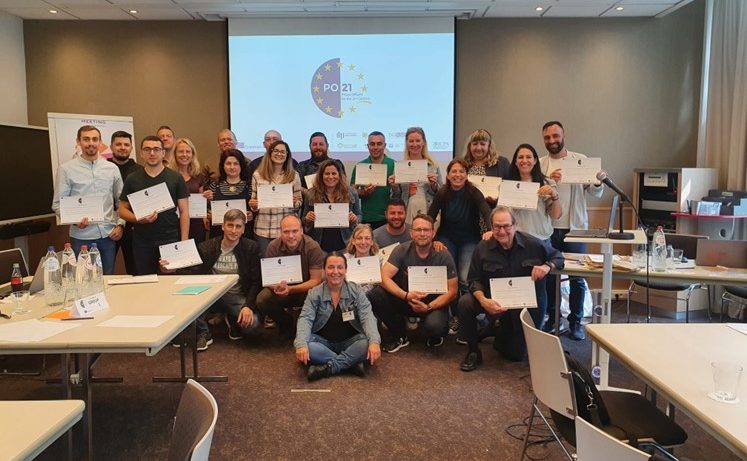To promote qualification standards across Europe, a selected group of prison staff contributed to designing an innovative training programme for prison officers.
In Europe, prison officers’ education and training can vary significantly from country to country. These differences that also apply to entry requirements, prevent officers from easily transferring their skills when applying to work in another Member-State.
While prison officers all over Europe share many everyday needs and challenges, certain needs, however, are more country-specific. Adequate training can help tackle the challenges prison officers face and provide them with the tools to safely perform their job and avoid stress-induced mental health issues. There are also localised pain points in terms of specialised training needs such as radicalisation prevention, digital skills, or tools to deal with an aging prison population.
How can we accommodate mobility with a standardised training that accounts for these differences?
The ‘European Prison Officers for the 21st Century’ (PO21) is a lead project aiming to tackle challenges linked to the training and education of prison officers. The initiative aims to develop a European VET initial training and training resources for prison officers based on an in-depth analysis of the role across Europe.
In the development of this curriculum, the project partners are seeking to standardise the core of the training contents and include independent modules to accommodate countries’ necessary specificities.
Developing a European prison officer professional profile and a European VET curriculum is challenging and demanding. PO21 is enlisting the help of those that know the prison staff’s needs better than anyone: Prison staff themselves.
This involvement has been the goal of the “Correctional Officers Professional Training Design Workshops”: Piloting and finetuning the modules developed under the project.

The latest workshop focused on defining the entry requirements for the newly developed PO21 professional profile. Participants identified and homogenised different European requirements for prison officers, to create a universal entry point.
Insights provided during the workshop led to the expansion of the VET curriculum, which grew in training hours (both theoretical and practical), more developed learning contexts, and evaluation strategies.
As part of the event, the prison staff in this workshop had the opportunity to visit the Beveren Prison, one of the most modern prison facilities in Europe. Part of its innovative approach is the inmates’ access to cell phones and no restrictions for speaking with their families over the phone. The prison is also highly developed in terms of infrastructure design.
Inmates shower in their own cells, and through biometric identification, they’re able to move around the various places they are authorised inside the prison without the supervision of a prison officer.
Beveren prison’s focus on a rehabilitative environment is a model example of the possible differences in the prison officer’s role across different geographical areas, even inside the same country. The prison visit allowed a different perspective to colour the debates in the following days of the workshop.
IPS will now integrate the inputs of this workshop into the VET curriculum and prepare for the third workshop in Bremen, Germany.
PO21 project is led by BSAFE LAB – Law Enforcement, Justice and Public Safety Research and Technology Transfer Lab, Beira Interior University (Portugal) in partnership with IPS_Innovative Prison Systems (Portugal), the Bremen Senate of Justice and Constitution (Germany), the Directorate-General for Reintegration and Prison Services (DGRSP, Portugal), the Federal Public Service Justice (Belgium), the National Trade Union of Prison Workers (SNLP, Romania), the National Trade Union of the Prison Guard Corps (SNCGP, Portugal), EuroPris – European Organisation of Prisons and Correctional Services (The Netherlands), and the Stichting Foundation ICPA Office in Europe (The Netherlands).
For further information about this project, please visit the PO21 website.
